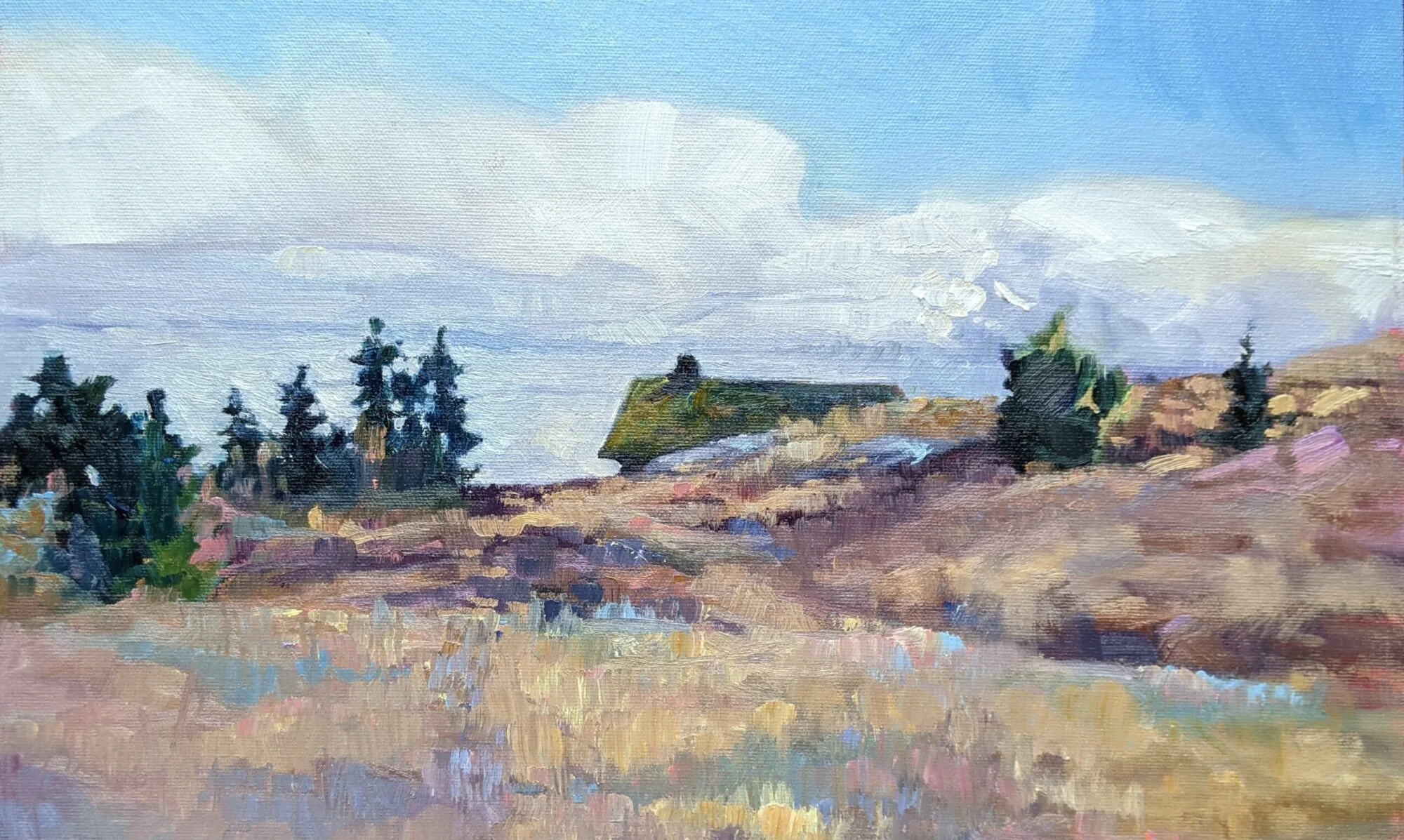You might be an excellent painter, but make sure you understand your own process thoroughly.
 |
| Me,teaching at Acadia National Park |
I started writing Monday Morning Art School back in October. This was in response to my students’ need for continuing education while I was elsewhere. It was also a way to put my scattershot “how to” posts in some kind of framework.
It takes longer than the posts I write the rest of the week, and it’s more complicated. It does funny things to my readership stats as well: Monday Morning Art School gets fewer hits than any other day of the week, but I get more mail about it than about anything else.
The difficult thing about writing a “how to” is slicing and dicing your process. That’s true of teaching in general. It’s one thing to know how to do something, and another to be able to stand outside your work and explain it step-by-step to a beginner. In a classroom, you read your students’ reactions and adjust your method accordingly. Writing (or video) is a one-way street.
 |
| Painting by student Catherine Bullinger in a one-day workshop last summer. |
A friend took drawing classes at a prestigious art school. I’ve wondered how a person with her mind could manage to not learn to draw in such a setting, but she did. She’s a brilliant woman. Drawing should have been a snap for her.
As I was writing about measuring curves as a series of straight line segments, I asked her if she’d ever been taught this simple skill. “The teacher was a wonderful botanical illustrator herself, but really in retrospect her teaching method was: ‘look at it and sketch it,’” she told me.
I’ve taken a few classes and workshops with great artists who couldn’t teach. At times the instructor thought that watching him paint was enough. No questions were allowed during the demo. That’s a real misunderstanding of the teacher’s role. His focus should be on describing and examining his process, not protecting it.
| Students painting at Owls Head. |
Anyway, if I wanted to watch someone paint, I’d have just bought the video.
Almost all artists get the idea somewhere along the way that they can teach, especially after their accountants tut-tut over their books. Many artists teach wonderfully, of course, and the world needs more people like them.
Others may be excellent painters, but haven’t analyzed their process thoroughly. Or, worse, they don’t have the communication skills to interact with strangers.
 |
| Yes, I demo, but there’s a lot more to teaching than that. |
Before you decide to run that class, run a check on yourself as you start and finish a painting. Can you clearly describe all aspects of your process, or is some of it automatic and mysterious even to you? If the latter, do yourself and your students a favor and hold off on teaching until you’ve got it straight in your mind.
This, by the way, is a lesson I learned the hard way.
